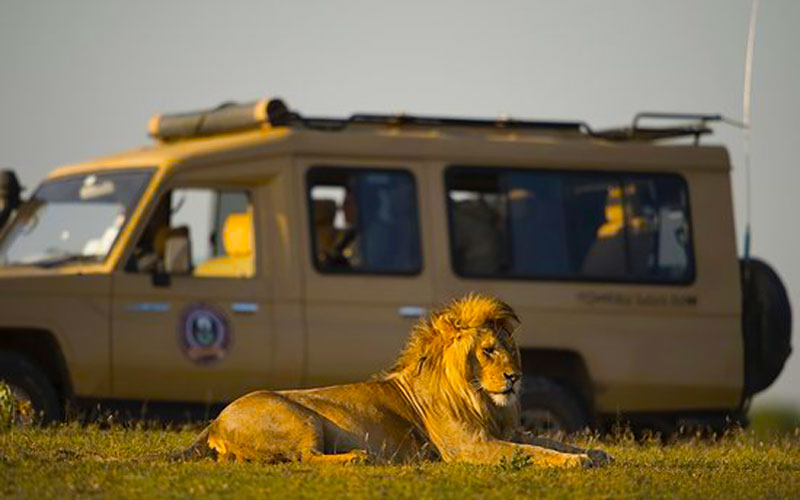
Introduction:
Safari companies are the gatekeepers to some of the most breathtaking and awe-inspiring experiences on the planet. With their expertise in wildlife tracking, conservation efforts, and providing immersive journeys into the heart of nature, safari companies play a vital role in connecting travelers with the wonders of the natural world. In this comprehensive guide, we dive deep into the world of safari companies, exploring their history, mission, and the unforgettable adventures they offer to those seeking to explore the wilds of Africa and beyond.
1. The Essence of Safari Companies:
Safari companies are dedicated to providing travelers with the opportunity to experience the beauty and diversity of the natural world up close. From game drives and walking safaris to hot air balloon rides and boat cruises, safari companies offer a variety of ways to explore the wilderness and encounter its inhabitants in their natural habitat.
2. History and Evolution of Safari Tourism:
The history of safari tourism can be traced back to the early days of exploration and colonialism, when adventurers and hunters ventured into the African wilderness in search of exotic game. Over time, the focus of safari tourism shifted from hunting to conservation, with the establishment of national parks, wildlife reserves, and protected areas to preserve and protect the continent’s natural heritage.
3. Mission and Values of Safari Companies:
Safari companies are guided by a commitment to conservation, sustainability, and responsible tourism practices. Many companies actively support local communities, wildlife conservation efforts, and environmental initiatives, ensuring that their operations have a positive impact on the places they visit and the people who call them home.
4. Types of Safari Experiences:
Safari companies offer a wide range of experiences tailored to suit the interests and preferences of travelers. Some of the most popular types of safari experiences include:
– Game Drives: Guided excursions in open-air vehicles through national parks and game reserves, providing opportunities to spot a wide variety of wildlife, including elephants, lions, giraffes, and zebras.
– Walking Safaris: Guided walks through the bush led by experienced trackers and guides, offering a more intimate and immersive experience of the wilderness and its inhabitants.
– Boat Safaris: Cruises along rivers, lakes, and waterways, allowing travelers to observe wildlife from a unique vantage point and discover hidden gems inaccessible by land.
– Hot Air Balloon Safaris: Aerial tours over the savannah at sunrise or sunset, providing breathtaking panoramic views of the landscape and its inhabitants from above.
5. Top Safari Destinations:
Africa is home to some of the world’s most iconic safari destinations, including:
– Kenya: Known for its vast savannahs, abundant wildlife, and annual wildebeest migration in the Maasai Mara National Reserve.
– Tanzania: Home to the iconic Serengeti National Park, Ngorongoro Crater, and the snow-capped peaks of Mount Kilimanjaro.
– South Africa: Offers a diverse range of safari experiences, from the renowned Kruger National Park to the private game reserves of the Sabi Sands and Timbavati.
– Botswana: Known for its pristine wilderness areas, including the Okavango Delta, Chobe National Park, and Moremi Game Reserve.
6. Choosing the Right Safari Company:
When selecting a safari company, it’s important to consider factors such as reputation, expertise, and commitment to sustainability. Look for companies with experienced guides, strong conservation ethics, and positive reviews from satisfied travelers. Additionally, consider the company’s specialization, whether it’s luxury safaris, family-friendly adventures, or off-the-beaten-path experiences, to ensure that they can meet your specific needs and interests.
7. Responsible Safari Tourism:
Safari companies play a crucial role in promoting responsible tourism practices that minimize environmental impact, support local communities, and preserve wildlife habitats. Responsible safari tourism practices include:
– Minimizing waste and pollution by using eco-friendly accommodations, vehicles, and equipment.
– Supporting local communities through employment opportunities, cultural exchanges, and community development projects.
– Contributing to wildlife conservation efforts through partnerships with conservation organizations, wildlife monitoring programs, and habitat restoration initiatives.
8. Conclusion:
Safari companies are the key to unlocking the wonders of the natural world, providing travelers with unforgettable experiences and memories that last a lifetime. Whether you’re seeking close encounters with Africa’s iconic wildlife, breathtaking landscapes, or cultural immersion with local communities, safari companies offer a variety of experiences to suit every traveler’s interests and preferences. So why wait? Embark on an adventure with a reputable safari company and let the magic of the wilderness unfold before your eyes.
For more Updates: paktoursntravel.com